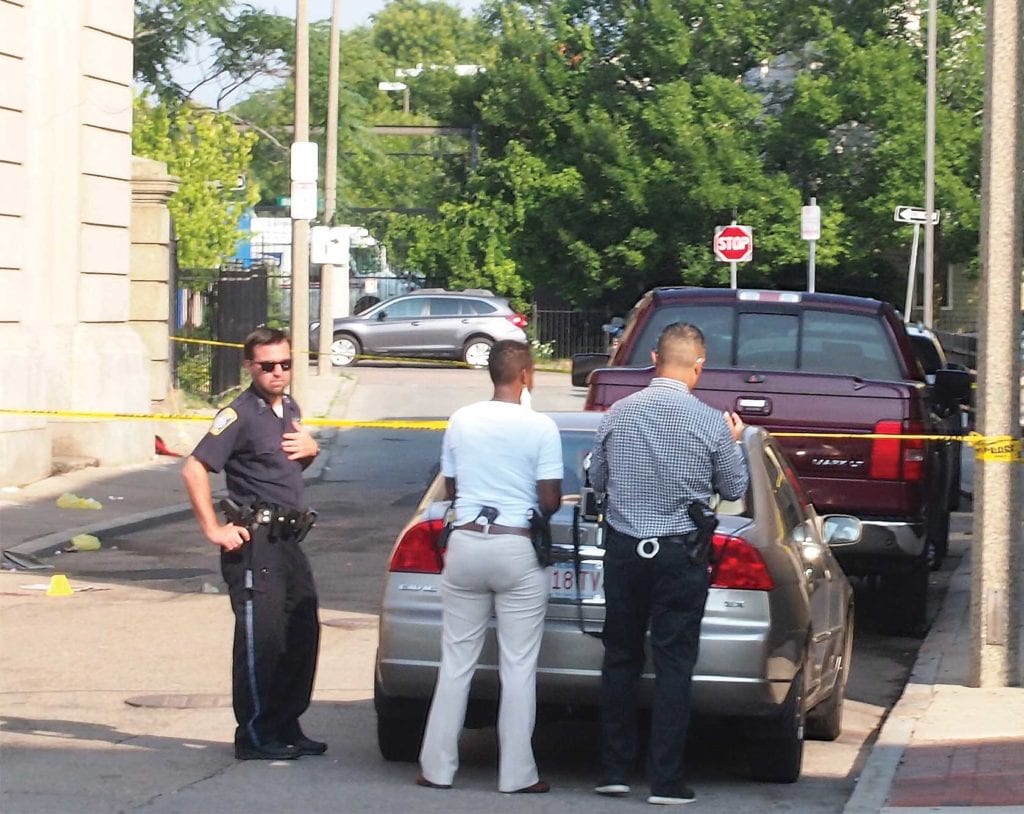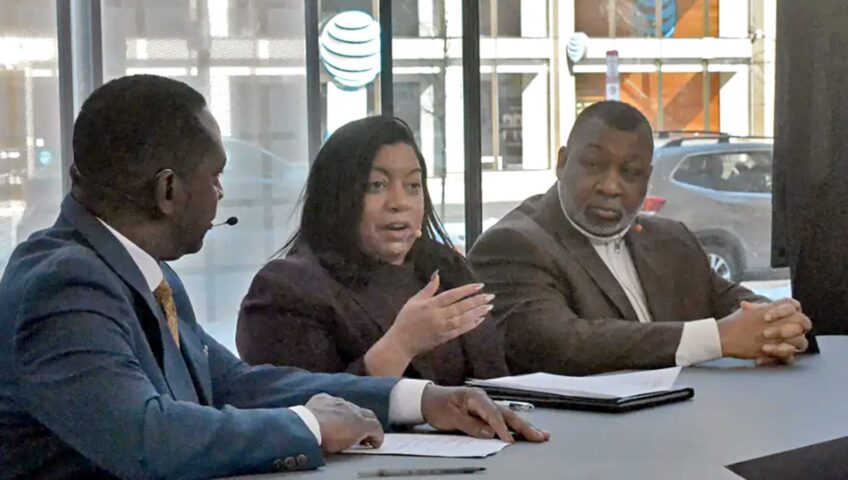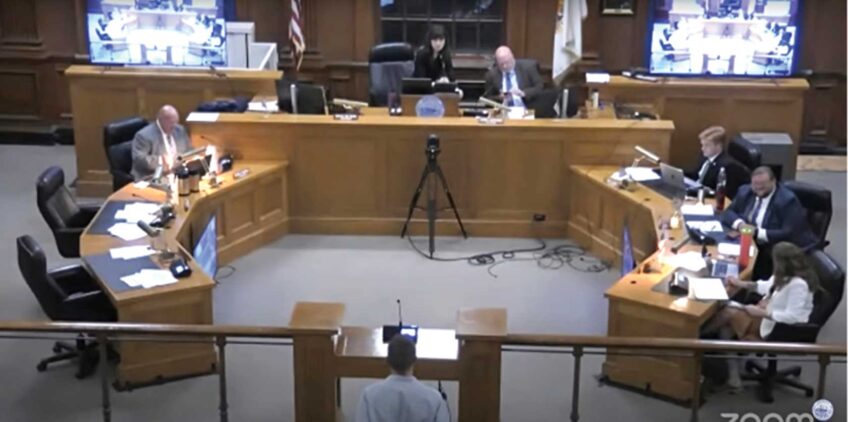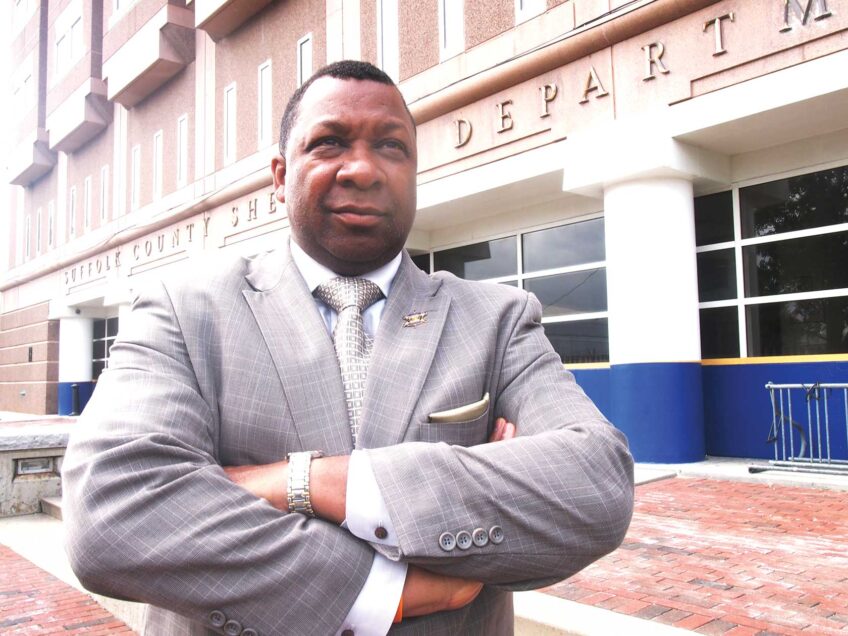Can a cop be in two places at once?
Overtime records show officers in court while they’re miles away

On Dec. 6, 2019, Boston Police Detective Dennis Crowley collected seven-and-a-quarter hours of overtime for a clerk magistrate hearing, clocking in to court at 8:30 a.m. and leaving at 3:45 p.m.
Also on Dec. 6, 2019, Crowley made a drug arrest at 11:15 a.m. at 82 Brent Street, a half-mile from the Dorchester courthouse.
At 10:14 a.m. on Jan. 4 of 2017, former BPD officer Domenic Columbo, then attached to the department’s gang unit, conducted a field intelligence observation report (FIO) on Holworthy Street while collecting seven hours of overtime for a motions hearing, where his overtime slip says he was in attendance from 9 a.m. till 4 p.m.
In these cases and in 124 others between 2016 and 2019, multiple Boston police officers appear to make arrests, traffic stops and FIOs, sometimes miles away from the nearest courthouse, while at the same time collecting overtime for hours-long court appearances.
Nathaniel Story, a researcher with the Woke Windows Project, which compiles data on local law enforcement, compared BPD court overtime records with incident reports filed by the officers appearing in court to reveal the apparent overlapping court appearances and arrests. Each incident report highlighted by the group occurs within the time span officers claim to be in court. The findings have raised questions about the accuracy of the officers’ overtime reporting and the department’s oversight of its overtime system.
“You have officers saying they’re in court and they’re not. You have court supervisors saying officers were in court when they weren’t,” said City Councilor Ricardo Arroyo, who has reviewed the records compiled by Woke Windows. “There’s no checks and balances in this system, that’s clear.”
A BPD spokesman told the Banner the department is reviewing the report to determine whether it’s accurate and said they are not ready to make a statement.
Boston police officers appear in court to testify and present evidence after making arrests. Their contract allows them to collect a minimum of four hours of overtime for those appearances when they’re called into court by district attorneys – but only if they’re off-duty during the hours court is in session. In each court, a department-designated court supervisor maintains a list of officers who have been summoned to the court. The court supervisor is responsible for verifying the times at which officers arrive at and leave the court.
Court supervisors give officers a signed receipt when they leave court, which the officers then turn in to receive their overtime pay. The department uses those paper receipts to track officers’ overtime in court.
Police records do not indicate in which court officers were working, but some of the incident reports show officers making arrests in areas far from the nearest court.
While the officers identified by the Woke Windows Project were summoned to court, the records raise red flags about both the accuracy of their court time reports and whether they were in fact off-duty at the time.
In another case, officer Keith Monahan submitted paperwork for seven hours of overtime in court on Jan. 16 of 2018. According to his slip, he arrived at court for a trial at 9 a.m. and remained there until 4 p.m.
Yet he filed a police report dated Jan. 16, 2018, in which he arrested a suspect for heroin possession at 3:32 p.m. on Dana Avenue in Hyde Park. Dana Avenue is 4.7 miles away from the nearest court, West Roxbury District Court.
Monahan, who in 2018 earned $244,343, received $49,525 in overtime pay that year.
Nathan Story, a software engineer who founded the Woke Windows Project, said he had read about overtime abuse and was curious to see what the data show for court appearances. He said he wasn’t surprised by the results.
“That there would be something fishy going on with Boston police overtime isn’t surprising,” he said.
In August, Arroyo filed a 17F request for records of police overtime. Story obtained a copy of the overtime data the police provided, which he then compared with police incident reports to compile the list he provided to the Banner.
Ten Boston police officers were disciplined after the department in 2011 conducted an internal audit that found more than 300 instances of questionable court overtime filings by members of the Drug Unit. A 2012 Boston Globe analysis found that over two years, BPD officers had collected more than 400 hours of overtime pay for appearances that were not requested by prosecutors.
Last month, federal prosecutors charged nine officers with conspiracy to commit theft after the officers assigned to the department’s evidence facility were found to have claimed overtime for hours they never worked.
Police overtime became a politically charged issue this year after local activists called for a 10% cut to the department’s $414 million budget and redirection of the $41 million in savings to social services. Mayor Martin Walsh instead cut 20% of the department’s $60 million overtime budget and channeled some of the $12 million savings into the city’s Department of Public Health while retaining some of the funding for police department-sponsored programs.
Walsh’s move was largely symbolic, as the police department routinely overspends its overtime budget and the city is contractually obligated to pay officers for overtime.
Six city councilors voted against the mayor’s budget in protest.
Among those voting down the budget was District 4 Councilor Andrea Campbell, who has proposed a civilian review board that would investigate police misconduct. Campbell said the overtime irregularities detailed in Story’s report are concerning.
“If true, reports like this erode public trust in law enforcement,” she said.







